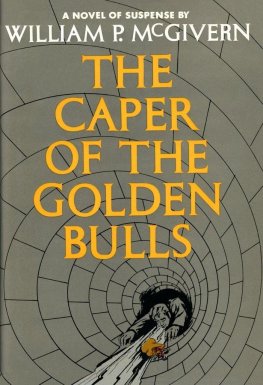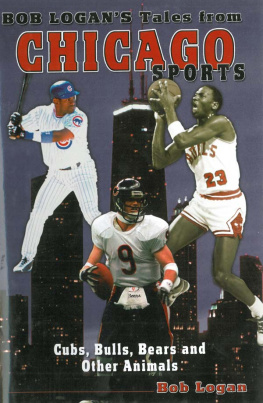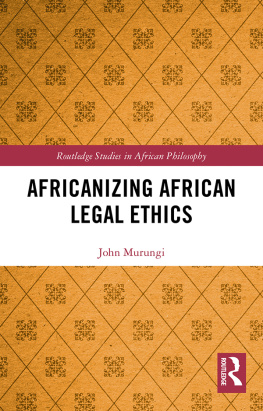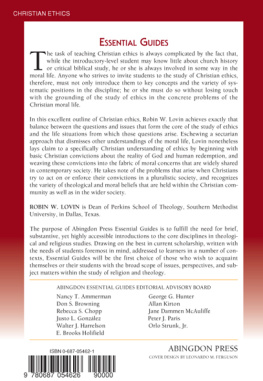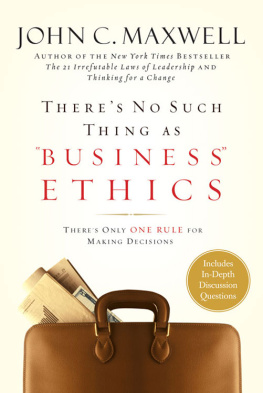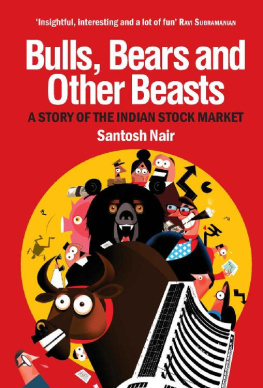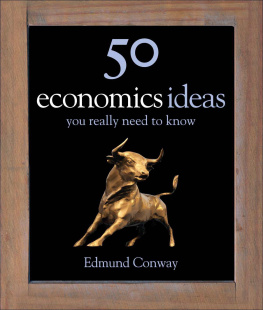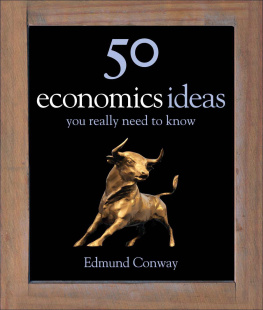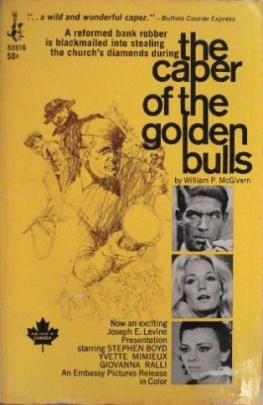John E. Stapleford - Bulls, Bears and Golden Calves: Applying Christian Ethics in Economics
Here you can read online John E. Stapleford - Bulls, Bears and Golden Calves: Applying Christian Ethics in Economics full text of the book (entire story) in english for free. Download pdf and epub, get meaning, cover and reviews about this ebook. year: 2015, publisher: InterVarsity Press / IVP Academic, genre: Religion. Description of the work, (preface) as well as reviews are available. Best literature library LitArk.com created for fans of good reading and offers a wide selection of genres:
Romance novel
Science fiction
Adventure
Detective
Science
History
Home and family
Prose
Art
Politics
Computer
Non-fiction
Religion
Business
Children
Humor
Choose a favorite category and find really read worthwhile books. Enjoy immersion in the world of imagination, feel the emotions of the characters or learn something new for yourself, make an fascinating discovery.

- Book:Bulls, Bears and Golden Calves: Applying Christian Ethics in Economics
- Author:
- Publisher:InterVarsity Press / IVP Academic
- Genre:
- Year:2015
- Rating:4 / 5
- Favourites:Add to favourites
- Your mark:
- 80
- 1
- 2
- 3
- 4
- 5
Bulls, Bears and Golden Calves: Applying Christian Ethics in Economics: summary, description and annotation
We offer to read an annotation, description, summary or preface (depends on what the author of the book "Bulls, Bears and Golden Calves: Applying Christian Ethics in Economics" wrote himself). If you haven't found the necessary information about the book — write in the comments, we will try to find it.
Bulls, Bears and Golden Calves: Applying Christian Ethics in Economics — read online for free the complete book (whole text) full work
Below is the text of the book, divided by pages. System saving the place of the last page read, allows you to conveniently read the book "Bulls, Bears and Golden Calves: Applying Christian Ethics in Economics" online for free, without having to search again every time where you left off. Put a bookmark, and you can go to the page where you finished reading at any time.
Font size:
Interval:
Bookmark:
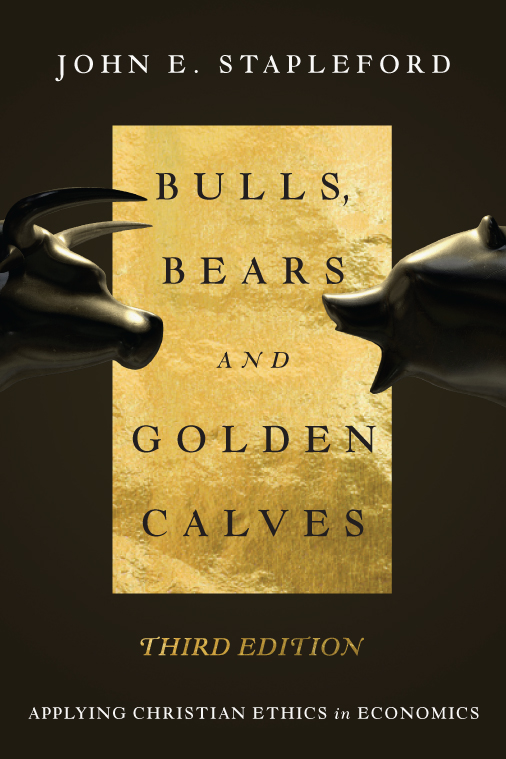
InterVarsity Press
P.O. Box 1400,
Downers Grove, IL 60515-1426
Third edition 2015 by John E. Stapleford
Second edition 2009 by John E. Stapleford
First edition 2002 by John E. Stapleford
All rights reserved. No part of this book may be reproduced in any form without written permission from InterVarsity Press.
InterVarsity Pressis the book-publishing division of InterVarsity Christian Fellowship/USA, a movement of students and faculty active on campus at hundreds of universities, colleges and schools of nursing in the United States of America, and a member movement of the International Fellowship of Evangelical Students. For information about local and regional activities, visit intervarsity.org .
All Scripture quotations, unless otherwise indicated, are taken from THE HOLY BIBLE, NEW INTERNATIONAL VERSION, NIVCopyright 1973, 1978, 1984, 2011 by Biblica, Inc.Used by permission. All rights reserved worldwide.
While any stories in this book are true, some names and identifying information may have been changed to protect the privacy of individuals.
Cover design: David Fassett
Images: animal bronze statues: allanswart/iStockphoto
Gold paper: iSailorr/iStockphoto
ISBN 978-0-8308-9714-8 (digital)
ISBN 978-0-8308-4072-4 (print)
The third edition adds two chapters. One considers whether economics is a science or an art and examines from a biblical perspective why this is even an issue of contention. The other evidences the advances made in relieving global poverty and the effectiveness of top down compared to bottom up development. All the data in all the remaining chapters has been updated and the latest topical research incorporated, as well as the few spiritual insights God has granted me since the publication of the previous edition. As before, hopefully the book remains current, accurate and balanced.
First and foremost, this book could not have been produced had I not been employed at Eastern University. Eastern encourages its faculty to examine their disciplines, all of life, from a Christian perspective. The integration of faith with scholarship is encouraged and respected.
William Pollard, CEO of ServiceMaster Corporation, provided a grant that helped to underwrite many of the initial research expenses. Through their publication of both my papers and book reviews, the US Association of Christian Economists and the Christian Business Faculty Association helped to advance the work. Thanks go to the UK Association of Christian Economists for the invitation to present at Oxford University the paper that became the basis of the book proposal circulated to prospective publishers.
At Eastern University I am particularly indebted to Dr. Eloise Meneses for her insights and belief in the project, and to Dr. David Fraser for opening the gate that initiated my exploratory efforts with respect to the relationship between Christian ethics and economics. Dr. Jack Bower, together with all my colleagues in the Department of Business, have been supportive and enthusiastic throughout.
Dr. Douglas Vickers, professor emeritus of economics, University of Massachusetts, Amherst, was extremely generous with his time, reading drafts of early papers and sharing his thoughts on spiritual issues. A number of his books helped to frame and develop the contents of this text. Dr. Francis X. Tannian, professor emeritus of urban economics, University of Delaware, read through early drafts of the text and gave detailed comments and suggestions. His combination of spiritual depth and grasp of economics were most valuable. Dr. Bertram Levin, professor emeritus of economics, University of Delaware, also read through an early draft of the text and helped to focus its economic content.
Randy Peterson edited the entire text and improved its readability immensely. He brought a wonderful writing talent and solid Christian perspective to the project.
Persons who should be singled out at InterVarsity Press include Dr. Gary Deddo.
Special thanks go to the sharing group to which my wife and I have belonged for over two decades for their prayers and enthusiasm. Finally, hugs to my wife, Linda, and to my childrenTom, Liza and Cathyfor their love and prayers over the years.
Addendum for the second edition: For the second edition I would like to especially acknowledge my colleague Dr. Van Weigel for his encouragement and enthusiasm regarding this book. And I dedicate this edition to my good friend Donald Robinson, who is now sharing all his many yarns with the Lord.
Addendum for the third edition: The third edition is dedicated to my Christian mentor, Uncle Jim Dormond, who waits on the other side to welcome me.
The objective of this book is to help the reader to apply Christian thinking to economic issues. Issues addressed range from the most fundamental assumptions underlying modern economics to societys placid acceptance of the legitimization and growth of immoral and spiritually destructive activities such as pornography.
The book assumes that ethics are inexorably intertwined with economic life and analysis. Ethics, whether transmitted through culture, religion or simply habit, influence the behavior of consumers and producers. Public policies, and their associated objectives, are almost always linked to ethical viewpoints. Lack of ethics such as honesty and trustworthiness can drive transaction costs so high as to choke off exchange and economic growth.
The book is written from the perspective of Christian ethics, Christian standards of behavior as found in Scripture. God makes it quite clear that we are to know his Word and apply it in our lives (Deut 6:5-9). The greatest commandment, Jesus instructs us, is to love the Lord our God with all our heart, soul and mind (Mt 22:36-37). As responsible disciples (disciple means learner), we are to apply our minds to all aspects of life, including the economic. We are to wrestle as Christians with the many economic issues that play such a prominent role in the lives of billions of persons.
The book is arranged in five parts. The first part lays the foundation for the Christian analysis in the remainder of the book through the presentation of a framework of Christian ethics relevant to economics. Part two contains Christian reflections on four of the most basic assumptions of market economics: the importance of self-interest, the goal of economic efficiency, the significance of private property rights and economics as a social science. Parts three, four and five apply the Christian ethical framework to a series of macroeconomic, microeconomic and international issues.
While the book may be read by persons with little background in economics, it is primarily intended to be a supplemental text to students studying introductory economics. The chapter topics were selected after a thorough examination of the leading textbooks used in teaching principles of economics.
Learning the conceptual frameworks of economics is not easy. Applying Christian ethics to these frameworks adds to the workload. Yet it is a challenge we are obligated to undertake if we have chosen to seek first his kingdom. As we toil, let us remember:
Instead of destroying the world,
as He did with Noah,
He destroyed the Old Adam in you.
Instead of drowning a false god,
Font size:
Interval:
Bookmark:
Similar books «Bulls, Bears and Golden Calves: Applying Christian Ethics in Economics»
Look at similar books to Bulls, Bears and Golden Calves: Applying Christian Ethics in Economics. We have selected literature similar in name and meaning in the hope of providing readers with more options to find new, interesting, not yet read works.
Discussion, reviews of the book Bulls, Bears and Golden Calves: Applying Christian Ethics in Economics and just readers' own opinions. Leave your comments, write what you think about the work, its meaning or the main characters. Specify what exactly you liked and what you didn't like, and why you think so.

